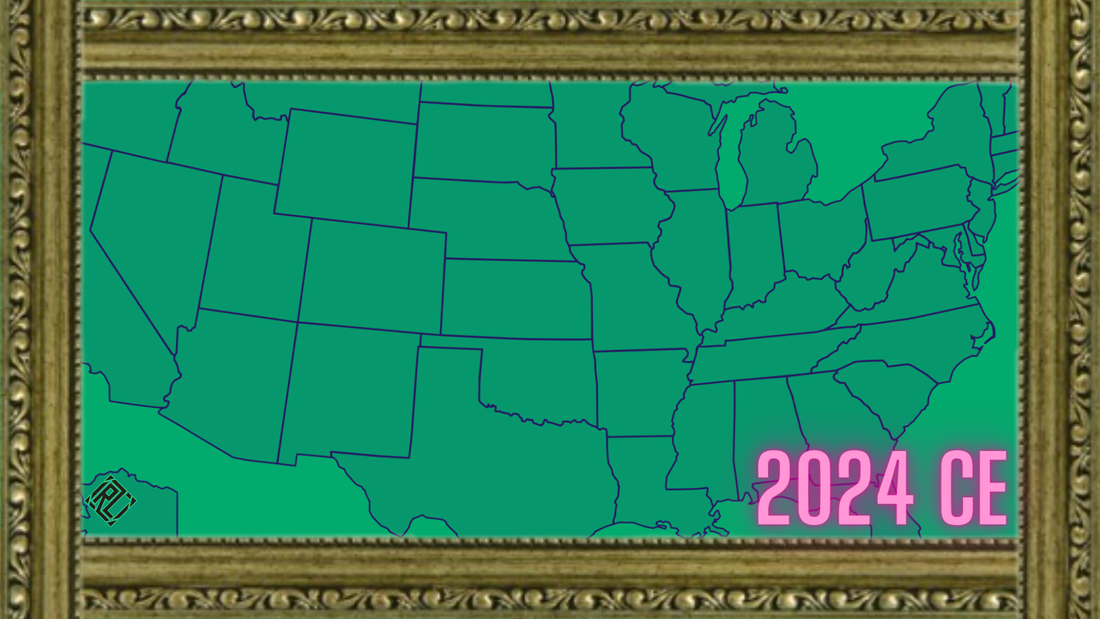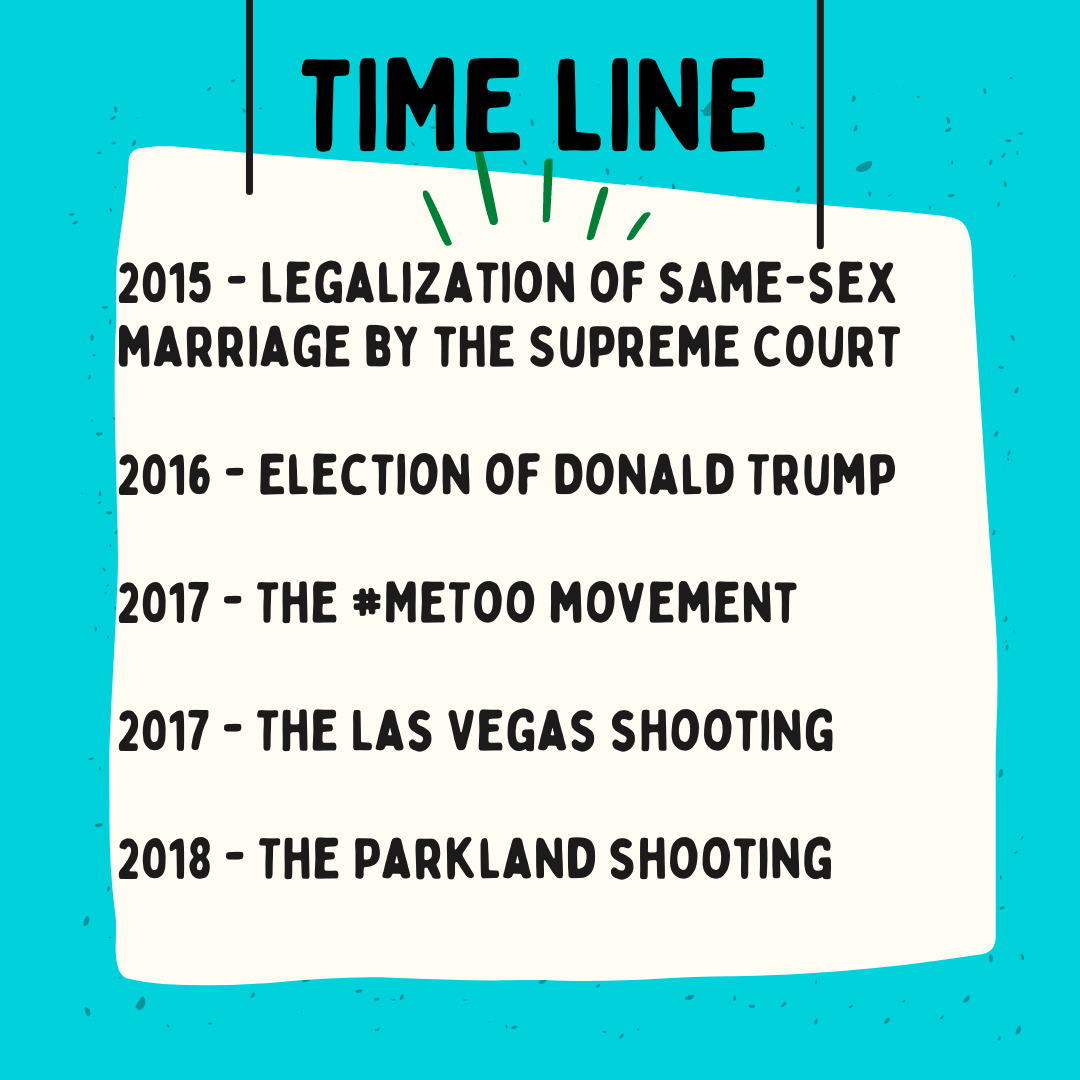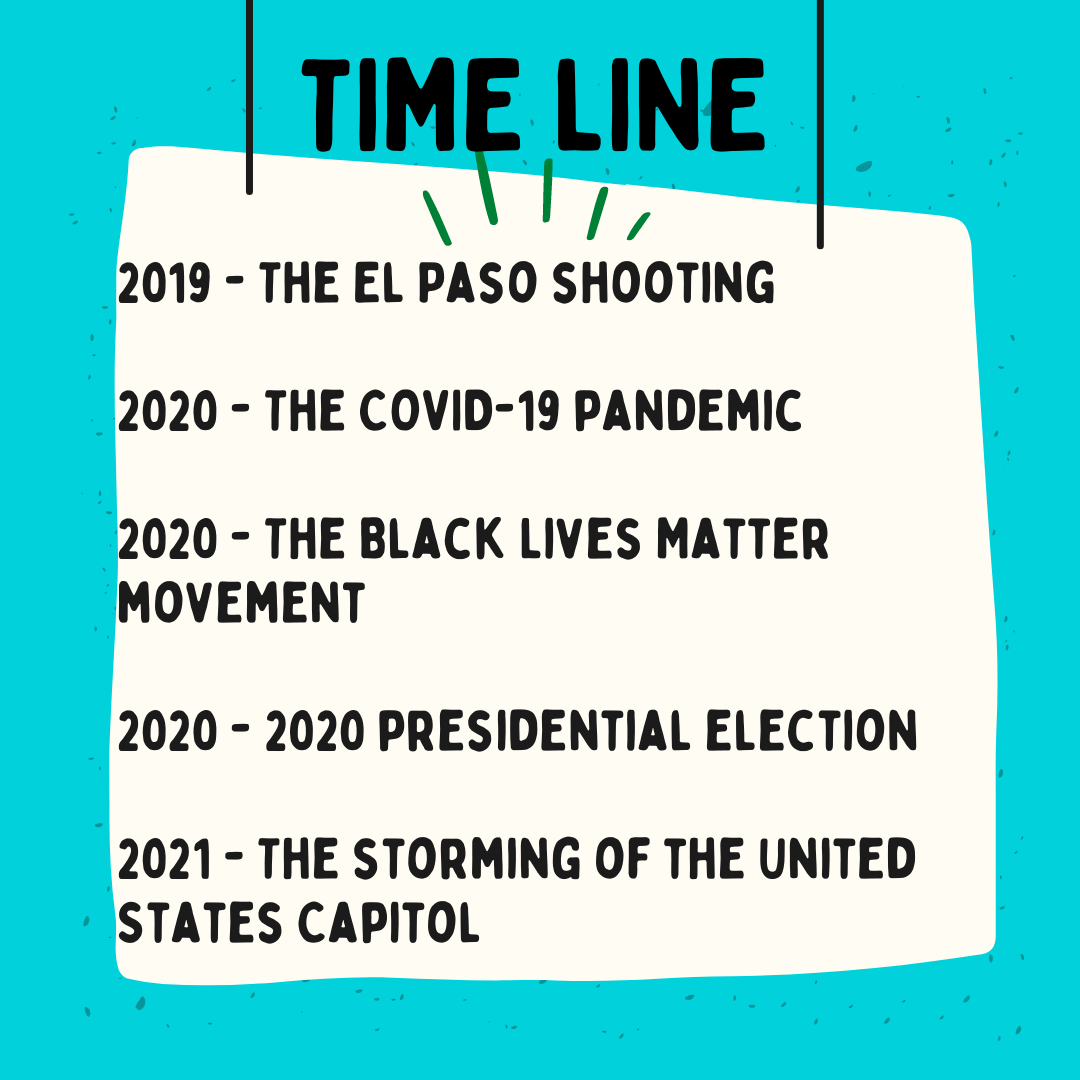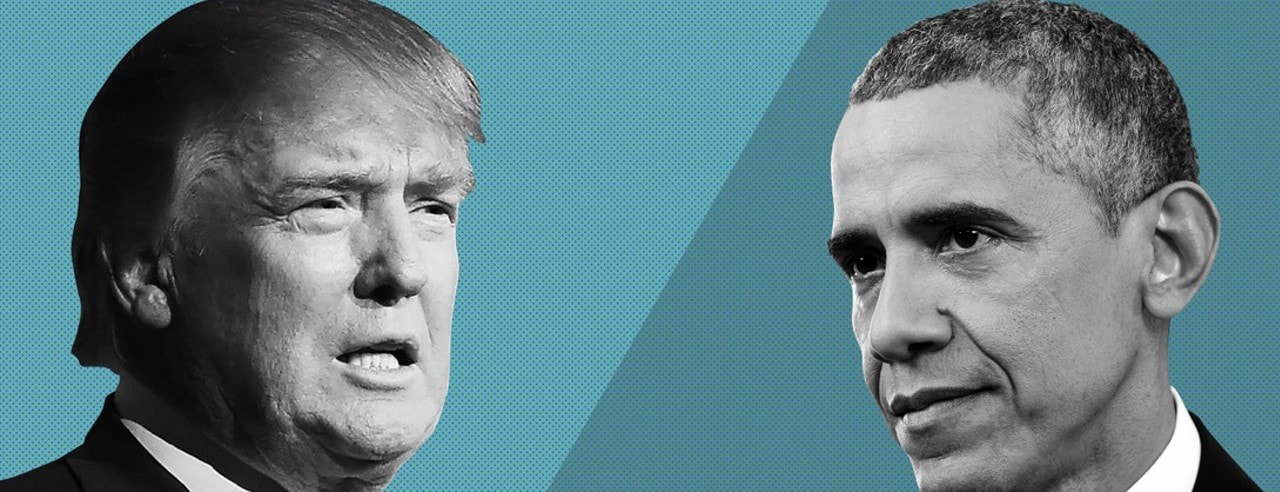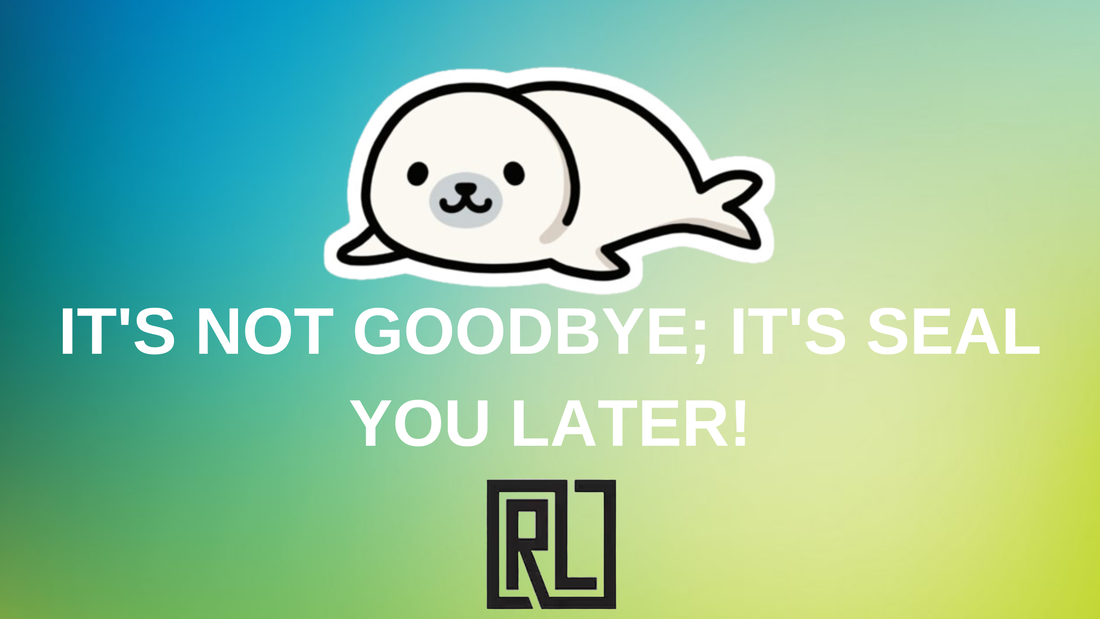HST 202 Module #15
The Present Tense (2013 CE - Present Day)
Navigating the wild ride of the last ten years feels like binge-watching a show where the plot twists are so unbelievable they'd get rejected by any decent scriptwriter. Imagine a show where politicians host a cooking competition. They serve up policies like the ACA and the Affordable Care Act, promising everyone a slice of healthcare heaven. But wait, the critics - Republicans - sprinkle in their two cents, claiming healthcare is more like truffle oil or caviar than a basic necessity. Ah, politics, where the main course often leaves you with a bitter aftertaste and political heartburn.
Speaking of heartburn, let's globe-trot through the Obama-era foreign policy menu. Obama's tango with ISIS felt like a bad date you can't escape. All those airstrikes? It's more like trying to swat a fly with a sledgehammer. ISIS kept buzzing back, more challenging than a cockroach in a zombie apocalypse. Think of it as a vacation spot that promises paradise but delivers a hellish experience.
Then, cue the Trump show—a presidency played out like a reality TV series with the American people as contestants. Trump's policies were like rollercoasters designed by someone who's never ridden one: thrilling highs, gut-wrenching lows, and mostly just leaving everyone queasy. Criminal justice reform? It's a breath of fresh air. Tax cuts for the wealthy? It's more like a slap in the face with a platinum card.
But, surprise! Amidst the chaos, Trump somehow brokered the Abraham Accords. A Nobel Peace Prize nod? It's like getting a ribbon at a family reunion where everyone's bickering over potato salad recipes. A peace prize for a president who once tweeted about "covfefe"? Sounds like a twist from a soap opera.
Then, there's the Black Lives Matter movement—a seismic shift that finally made America notice its flaws. Critics labeled BLM as divisive, as if demanding justice were a cardinal sin. It's like faulting firefighters for using too much water in a blaze.
Enter the COVID-19 plot twist—the curveball nobody saw coming. Suddenly, everything stopped, like a movie scene where the director yelled "cut" but forgot to call "action." The pandemic exposed the cracks in the U.S. healthcare system, making it look as fractured as a family Thanksgiving chat about politics.
And the rise of far-right extremism? It's like a subplot that keeps getting darker. Hate crimes and extremist views have become the boogeymen haunting the American dream. Imagine it as America's worst spin-off: "Survivor: Far-Right Extremism Edition," with democracy, human rights, and decency as the endangered contestants.
So, what's the moral of this wacky show? The last decade's been a whirlwind tour of America's highs and lows, like a reality show you can't turn off. It's a reminder that progress and setbacks often go hand-in-hand, like a mismatched pair on a game show.
As we look back, let's remember the lessons: resilience, empathy, and the courage to stand up for what's right—even when it's unpopular. Because America's story isn't just about its leaders or policies—it's about its people, with all their flaws and fabulousness, navigating a ridiculous and riveting world. Here's to a future where we learn, laugh, and build a society that's as inclusive as it is inspiring.
THE RUNDOWN
QUESTIONS
Navigating the wild ride of the last ten years feels like binge-watching a show where the plot twists are so unbelievable they'd get rejected by any decent scriptwriter. Imagine a show where politicians host a cooking competition. They serve up policies like the ACA and the Affordable Care Act, promising everyone a slice of healthcare heaven. But wait, the critics - Republicans - sprinkle in their two cents, claiming healthcare is more like truffle oil or caviar than a basic necessity. Ah, politics, where the main course often leaves you with a bitter aftertaste and political heartburn.
Speaking of heartburn, let's globe-trot through the Obama-era foreign policy menu. Obama's tango with ISIS felt like a bad date you can't escape. All those airstrikes? It's more like trying to swat a fly with a sledgehammer. ISIS kept buzzing back, more challenging than a cockroach in a zombie apocalypse. Think of it as a vacation spot that promises paradise but delivers a hellish experience.
Then, cue the Trump show—a presidency played out like a reality TV series with the American people as contestants. Trump's policies were like rollercoasters designed by someone who's never ridden one: thrilling highs, gut-wrenching lows, and mostly just leaving everyone queasy. Criminal justice reform? It's a breath of fresh air. Tax cuts for the wealthy? It's more like a slap in the face with a platinum card.
But, surprise! Amidst the chaos, Trump somehow brokered the Abraham Accords. A Nobel Peace Prize nod? It's like getting a ribbon at a family reunion where everyone's bickering over potato salad recipes. A peace prize for a president who once tweeted about "covfefe"? Sounds like a twist from a soap opera.
Then, there's the Black Lives Matter movement—a seismic shift that finally made America notice its flaws. Critics labeled BLM as divisive, as if demanding justice were a cardinal sin. It's like faulting firefighters for using too much water in a blaze.
Enter the COVID-19 plot twist—the curveball nobody saw coming. Suddenly, everything stopped, like a movie scene where the director yelled "cut" but forgot to call "action." The pandemic exposed the cracks in the U.S. healthcare system, making it look as fractured as a family Thanksgiving chat about politics.
And the rise of far-right extremism? It's like a subplot that keeps getting darker. Hate crimes and extremist views have become the boogeymen haunting the American dream. Imagine it as America's worst spin-off: "Survivor: Far-Right Extremism Edition," with democracy, human rights, and decency as the endangered contestants.
So, what's the moral of this wacky show? The last decade's been a whirlwind tour of America's highs and lows, like a reality show you can't turn off. It's a reminder that progress and setbacks often go hand-in-hand, like a mismatched pair on a game show.
As we look back, let's remember the lessons: resilience, empathy, and the courage to stand up for what's right—even when it's unpopular. Because America's story isn't just about its leaders or policies—it's about its people, with all their flaws and fabulousness, navigating a ridiculous and riveting world. Here's to a future where we learn, laugh, and build a society that's as inclusive as it is inspiring.
THE RUNDOWN
- The Affordable Care Act expanded healthcare coverage, but faced opposition and legal challenges from Republicans, changing how millions of Americans access healthcare (2013-2017).
- Donald Trump's presidency brought tax cuts and criminal justice reform, but also controversy and strained international relations (2017-2021).
- The Black Lives Matter movement gained momentum, sparking nationwide protests and raising awareness about racial inequality and police brutality (2013-present).
- The COVID-19 pandemic exposed weaknesses in healthcare and highlighted the need for global cooperation, causing widespread disruptions (2019-present).
- Far-right extremism rose, leading to hate crimes and acts of domestic terrorism, emphasizing the need to combat hate speech and extremist ideologies (2013-present).
- Studying this period is important to understand the challenges and changes in healthcare, social justice, global cooperation, and extremism shaping the U.S. today.
QUESTIONS
- How did the election of Donald Trump impact the political and social climate of the US, and what were some of his significant achievements and controversies?
- How has the Black Lives Matter movement impacted the conversation around racial justice and police reform in the US, and what successes and challenges has it faced?
- In what ways did the COVID-19 pandemic expose weaknesses in the healthcare and public health infrastructure of the US, and what lessons can be learned from the pandemic?
#15: Don't Lose Your Humanity
History is a grand tapestry woven with humanity's triumphant moments and blunders—a vast narrative where names, dates, and battles can quickly become tangled. Yet, beneath the surface, history offers authentic stories that capture events and the raw emotions of those who lived through them. Some of these stories seem as incongruous as a vegetarian at a barbecue or a gravity denier in a space agency.
Take the Tokyo air raid of 1945. On the surface, it's a grim statistic, a mere footnote in the annals of warfare. But imagine the anguish of a mother sifting through the rubble, searching desperately for her child amidst the devastation. Suddenly, those 100,000 lives lost aren't just numbers—they're individual heartbeats extinguished in an instant. War is not merely a clash of armies; it's a collision of human souls, leaving indelible scars.
Consider the Holocaust—six million Jews were exterminated. It's more than a staggering number; it's a mosaic of Elie Wiesel's deepest fears, Anne Frank's shattered dreams, and the silent screams echoing within the walls of Auschwitz. Wiesel's "Night" doesn't just recount; it plunges you into darkness, challenging you to confront the unimaginable, much like enduring a gut-wrenching marathon of "Black Mirror."
He is switching gears to the Civil Rights Movement of the '50s and '60s—America's tumultuous journey toward unity. James Baldwin's "Notes of a Native Son" is more than literature; it's a clarion call. Baldwin doesn't merely discuss racism; he embodies it, confronts it, and throws it back at society with a forceful slap. America has a history of dishing out plenty of nonsense, and Baldwin brings it back.
So, what's the overarching theme? Stories humanize history and illuminate its quirks. We can send cars into space but need help feeding our planet. We erect towers that touch the heavens yet grapple with lifting people out of poverty. It's as if our world was designed by an amateur who earned their diploma from a cereal box.
But stories aren't without their flaws. They're messy, colored by perspective, and sometimes as reliable as a fast-food diet. Confederate soldier journals, for example, are captivating but rife with bias—like trying to solve a puzzle with missing pieces and some from entirely different sets.
So, where does this leave us? With a history as imperfect and enthralling as the people who chronicle it. While stories can be as unreliable as a stormy weather forecast, they offer our best glimpse into the human experience. After all, we're all navigating this unpredictable journey, deciphering a world that often speaks in cryptic riddles.
Ultimately, history isn't just about the past; it mirrors our present and shapes our future. It's a distorted funhouse mirror reflecting our triumphs, blunders, and peculiar choices—whether it's topping pizza with pineapple or electing a reality TV star as a leader. So, let's embrace the chaos, contradictions, and sheer absurdity because that makes us human. And if history teaches us anything, being human is one wild, unpredictable adventure.
RUNDOWN
STATE OF THE UNION
History is a grand tapestry woven with humanity's triumphant moments and blunders—a vast narrative where names, dates, and battles can quickly become tangled. Yet, beneath the surface, history offers authentic stories that capture events and the raw emotions of those who lived through them. Some of these stories seem as incongruous as a vegetarian at a barbecue or a gravity denier in a space agency.
Take the Tokyo air raid of 1945. On the surface, it's a grim statistic, a mere footnote in the annals of warfare. But imagine the anguish of a mother sifting through the rubble, searching desperately for her child amidst the devastation. Suddenly, those 100,000 lives lost aren't just numbers—they're individual heartbeats extinguished in an instant. War is not merely a clash of armies; it's a collision of human souls, leaving indelible scars.
Consider the Holocaust—six million Jews were exterminated. It's more than a staggering number; it's a mosaic of Elie Wiesel's deepest fears, Anne Frank's shattered dreams, and the silent screams echoing within the walls of Auschwitz. Wiesel's "Night" doesn't just recount; it plunges you into darkness, challenging you to confront the unimaginable, much like enduring a gut-wrenching marathon of "Black Mirror."
He is switching gears to the Civil Rights Movement of the '50s and '60s—America's tumultuous journey toward unity. James Baldwin's "Notes of a Native Son" is more than literature; it's a clarion call. Baldwin doesn't merely discuss racism; he embodies it, confronts it, and throws it back at society with a forceful slap. America has a history of dishing out plenty of nonsense, and Baldwin brings it back.
So, what's the overarching theme? Stories humanize history and illuminate its quirks. We can send cars into space but need help feeding our planet. We erect towers that touch the heavens yet grapple with lifting people out of poverty. It's as if our world was designed by an amateur who earned their diploma from a cereal box.
But stories aren't without their flaws. They're messy, colored by perspective, and sometimes as reliable as a fast-food diet. Confederate soldier journals, for example, are captivating but rife with bias—like trying to solve a puzzle with missing pieces and some from entirely different sets.
So, where does this leave us? With a history as imperfect and enthralling as the people who chronicle it. While stories can be as unreliable as a stormy weather forecast, they offer our best glimpse into the human experience. After all, we're all navigating this unpredictable journey, deciphering a world that often speaks in cryptic riddles.
Ultimately, history isn't just about the past; it mirrors our present and shapes our future. It's a distorted funhouse mirror reflecting our triumphs, blunders, and peculiar choices—whether it's topping pizza with pineapple or electing a reality TV star as a leader. So, let's embrace the chaos, contradictions, and sheer absurdity because that makes us human. And if history teaches us anything, being human is one wild, unpredictable adventure.
RUNDOWN
- Personal stories humanize historical events, fostering empathy and making them relatable.
- Anecdotal accounts provide diverse viewpoints, shedding light on overlooked aspects of history.
- Survivors' narratives reveal the profound human cost of events like the Tokyo bombing in 1945.
- Elie Wiesel's "Night" offers a harrowing personal account that challenges sanitized views of the Holocaust.
- James Baldwin's "Notes of a Native Son" illuminates the systemic racism faced during the Civil Rights Movement.
- Confederate soldier diaries from the Civil War offer valuable but biased insights, requiring critical evaluation for a complete understanding.
STATE OF THE UNION
In the bustling heart of 2024's cityscape, where neon pulses and tech rules, we're on a rollercoaster ride of contradictions. AI's our guru, smart fridges are our roommates with too many self-help books, and 5G's promising faster connections while buffering our movies. Climate change, a nail-biting reality, and our sustainability efforts, a desperate attempt to rearrange chairs on a sinking ship. Geopolitics is a never-ending soap opera, with trade disputes as tabloid fodder, and our economy's a Monopoly game where the rich thrive. Healthcare's a high-tech puzzle, remote work's blurred our home-office lines, and social issues are our battlegrounds. Cybersecurity is our modern bogeyman, pandemics lurk like sequels to a horror movie, and inequality widens the chasm between us. Through it all, we adapt, joke, and roll with life's punches, because laughter's our best defense in this wild, mixed-up world.
HIGHLIGHTS
We've got some fine classroom lectures coming your way, all courtesy of the RPTM podcast. These lectures will take you on a wild ride through history, exploring everything from ancient civilizations and epic battles to scientific breakthroughs and artistic revolutions. The podcast will guide you through each lecture with its no-nonsense, straight-talking style, using various sources to give you the lowdown on each topic. You won't find any fancy-pants jargon or convoluted theories here, just plain and straightforward explanations anyone can understand. So sit back and prepare to soak up some knowledge.
LECTURES
LECTURES
- COMING SOON
READING
This class utilizes the following textbook:
Carnes, Mark C., and John A. Garraty. American Destiny: Narrative of a Nation. 4th ed. Vol. 2.: Pearson, 2011.
Mark C. Carnes and John A. Garraty are respected historians who have made notable contributions to American history. Carnes specializes in American education and culture, focusing on the role of secret societies in shaping American culture in the 19th century. Garraty is known for his general surveys of American history, his biographies of American historical figures and studies of specific aspects of American history, and his clear and accessible writing.
This class utilizes the following textbook:
Carnes, Mark C., and John A. Garraty. American Destiny: Narrative of a Nation. 4th ed. Vol. 2.: Pearson, 2011.
Mark C. Carnes and John A. Garraty are respected historians who have made notable contributions to American history. Carnes specializes in American education and culture, focusing on the role of secret societies in shaping American culture in the 19th century. Garraty is known for his general surveys of American history, his biographies of American historical figures and studies of specific aspects of American history, and his clear and accessible writing.
Howard Zinn was a historian, writer, and political activist known for his critical analysis of American history. He is particularly well-known for his counter-narrative to traditional American history accounts and highlights marginalized groups' experiences and perspectives. Zinn's work is often associated with social history and is known for his Marxist and socialist views. Larry Schweikart is also a historian, but his work and perspective are often considered more conservative. Schweikart's work is often associated with military history, and he is known for his support of free-market economics and limited government. Overall, Zinn and Schweikart have different perspectives on various historical issues and events and may interpret historical events and phenomena differently. Occasionally, we will also look at Thaddeus Russell, a historian, author, and academic. Russell has written extensively on the history of social and cultural change, and his work focuses on how marginalized and oppressed groups have challenged and transformed mainstream culture. Russell is known for his unconventional and controversial ideas, and his work has been praised for its originality and provocative nature.
My classes utilize both Howard Zinn's Patriot's History of the United States and Larry Schweikart's Patriot's History of the United States, mostly in excerpts posted to the modules. You can access the full text of People's History or Patriot's History by clicking on the links.
My classes utilize both Howard Zinn's Patriot's History of the United States and Larry Schweikart's Patriot's History of the United States, mostly in excerpts posted to the modules. You can access the full text of People's History or Patriot's History by clicking on the links.

Zinn, A People's History of the United States
"... In the United States, we see the educational system, a burgeoning new literature, alternative radio stations, a wealth of documentary films outside the mainstream, even Hollywood itself and sometimes television-compelled to recognize the growing multiracial character of the nation. Yes, we have in this country, dominated by corporate wealth and military power and two antiquated political parties, what a fearful conservative characterized as "a permanent adversarial culture" challenging the present, demanding a new future.
It is a race in which we can all choose to participate, or just to watch. But we should know that our choice will help determine the outcome.
I think of the words of the poet Shelley, recited by women garment workers in New York to one another at the start of the twentieth century.
Rise like lions after slumber In unvanquishable number! Shake your chains to earth, like dew Which in sleep had fallen on you- Ye are many; they are few!"
"... In the United States, we see the educational system, a burgeoning new literature, alternative radio stations, a wealth of documentary films outside the mainstream, even Hollywood itself and sometimes television-compelled to recognize the growing multiracial character of the nation. Yes, we have in this country, dominated by corporate wealth and military power and two antiquated political parties, what a fearful conservative characterized as "a permanent adversarial culture" challenging the present, demanding a new future.
It is a race in which we can all choose to participate, or just to watch. But we should know that our choice will help determine the outcome.
I think of the words of the poet Shelley, recited by women garment workers in New York to one another at the start of the twentieth century.
Rise like lions after slumber In unvanquishable number! Shake your chains to earth, like dew Which in sleep had fallen on you- Ye are many; they are few!"

Larry Schweikart, A Patriot's History of the United States
"... If the immediate horror of 9/11 has dissipated, the attack nevertheless served as a profound reminder that buildings, however symbolic they might be, are nothing more than concrete and steel. The precious human lives they contained testified, by their loss, that what remains are ideas. Intending to shatter the “materialism” of the United States, Osama bin Laden’s terrorists merely reminded the world of the supremacy of the intangible over the physical, of the spiritual over the temporal. Focusing Americans’ thoughts once again on freedom—and its enemies—terrorists united a nation seriously divided by an election and elevated a president under fire to a position of
historical greatness.
The fatal flaw of bin Laden—like Hitler, Stalin, and even the nearsighted Spaniards of five hundred years ago—was that they fixed their gaze on the physical manifestations of the wealth of the West, failing to understand that wealth is a mere by-product of other, more important qualities: initiative, inventiveness, hope, optimism, and above all, faith. The people who had set foot in Virginia and Massachusetts almost three centuries ago often arrived poor, usually alone, and certainly without lofty titles or royal honors. After they plowed the fields and founded their enterprises, it was not the farms alone that made Benjamin Franklin’s Philadelphia flourish, nor trade alone that breathed life into the Boston of John Adams. Mere plantations did not produce George Washington and Thomas Jefferson, nor did a legal system spawn Alexander Hamilton and Abraham Lincoln. American determination and drive, vision and commitment came not from acquisition of material things— though the freedom to acquire things was a prerequisite. Rather, greatness came from an all consuming sense that this was, after all, the 'city on a hill,' the 'last, best hope for mankind.' The United States was, and is, a fountain of hope, and a beacon of liberty..."
"... If the immediate horror of 9/11 has dissipated, the attack nevertheless served as a profound reminder that buildings, however symbolic they might be, are nothing more than concrete and steel. The precious human lives they contained testified, by their loss, that what remains are ideas. Intending to shatter the “materialism” of the United States, Osama bin Laden’s terrorists merely reminded the world of the supremacy of the intangible over the physical, of the spiritual over the temporal. Focusing Americans’ thoughts once again on freedom—and its enemies—terrorists united a nation seriously divided by an election and elevated a president under fire to a position of
historical greatness.
The fatal flaw of bin Laden—like Hitler, Stalin, and even the nearsighted Spaniards of five hundred years ago—was that they fixed their gaze on the physical manifestations of the wealth of the West, failing to understand that wealth is a mere by-product of other, more important qualities: initiative, inventiveness, hope, optimism, and above all, faith. The people who had set foot in Virginia and Massachusetts almost three centuries ago often arrived poor, usually alone, and certainly without lofty titles or royal honors. After they plowed the fields and founded their enterprises, it was not the farms alone that made Benjamin Franklin’s Philadelphia flourish, nor trade alone that breathed life into the Boston of John Adams. Mere plantations did not produce George Washington and Thomas Jefferson, nor did a legal system spawn Alexander Hamilton and Abraham Lincoln. American determination and drive, vision and commitment came not from acquisition of material things— though the freedom to acquire things was a prerequisite. Rather, greatness came from an all consuming sense that this was, after all, the 'city on a hill,' the 'last, best hope for mankind.' The United States was, and is, a fountain of hope, and a beacon of liberty..."
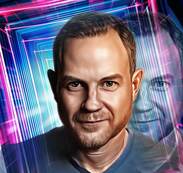
Thaddeus Russell, A Renegade History of the United States
"... When American history was first written, it featured and often celebrated politicians, military leaders, inventors, explorers, and other 'great men.' Textbooks in high school and college credited those goliaths with creating all the distinctive cultural and institutional characteristics of the United States. In this history from the top down, women, Indians, African Americans, immigrants, and ordinary workers—in other words, most Americans—seldom appeared. In the 1960s and 1970s, a new generation of scholars began to place labor leaders, feminists, civil rights activists, and others who spoke on behalf of the people at the center of the story. This became known as history 'from the bottom up.' Yet more often than not, it seemed to me, the new stars of American history shared many of the cultural values and assumptions of the great men. They not only behaved like 'good' Americans but also worked to “correct” the people they claimed to represent. They were not ordinary..."
"... When American history was first written, it featured and often celebrated politicians, military leaders, inventors, explorers, and other 'great men.' Textbooks in high school and college credited those goliaths with creating all the distinctive cultural and institutional characteristics of the United States. In this history from the top down, women, Indians, African Americans, immigrants, and ordinary workers—in other words, most Americans—seldom appeared. In the 1960s and 1970s, a new generation of scholars began to place labor leaders, feminists, civil rights activists, and others who spoke on behalf of the people at the center of the story. This became known as history 'from the bottom up.' Yet more often than not, it seemed to me, the new stars of American history shared many of the cultural values and assumptions of the great men. They not only behaved like 'good' Americans but also worked to “correct” the people they claimed to represent. They were not ordinary..."
What Does Professor Lancaster Think?
In the lively streets of New York City, where the scent of street food dances with the smell of car exhaust, you'll find the rhythm of a country full of quirks. It's a place where the "melting pot" doesn't quite capture the wild mix of cultures, dreams, and downright silliness that make up the American tapestry. For instance, you might stumble upon a group of people doing yoga in the middle of Times Square, or witness a street performer dressed as a giant hot dog. These are just a few of the many cultural quirks that make New York City a unique place.
Let's talk Food. In a town where a fancy $50 avocado toast lives next door to a $1 pizza slice, our culinary scene is a microcosm of economic extremes. We've made eating into a status game where your brunch can speak volumes about your social scene. For example, opting for a trendy, expensive brunch spot might signal that you're part of the 'in 'crowd while grabbing a cheap slice of pizza could be seen as a sign of frugality or a lack of social status. Food isn't just fuel; it's an ID badge, a lifestyle choice, even a political stance. And don't even get me started on kale smoothies.
Travel, a beloved American pastime, has transformed into a quest for self-discovery, often confined to meticulously curated Instagram posts. We embark on journeys to 'find ourselves,' only to encounter the familiar logos of Starbucks and McDonald's at every corner. Our shopping habits have proliferated like wildfire, replacing genuine adventures with a standardized, 'Made in America' experience. Pause for a moment and reflect, are we truly experiencing the world or merely collecting snapshots for our digital profiles?
Yet, even in this global mall, pockets of realness hang tough. The "permanent contrarians," let's call them, are those who consistently challenge the blandness of mainstream culture. They're the ones side-eyeing the cost of avocado toast, pushing for eco-friendly travel, and reminding us that life's not just a highlight reel. These contrarians are not just rebels for the sake of it, but individuals who genuinely believe in the power of diversity and individuality.
But let's be honest, swimming against the tide is tiring. It's like a never-ending game of Whack-a-Mole, with a new twist at every turn. While we cheer the victories of activists and champions for justice, such as the legalization of same-sex marriage or the # MeToo movement, the day-to-day tells a different tale. Big inequalities still loom, and the voices that should lead the chorus are often drowned out by the loudest media voices.
We're all stuck in a wacky reality show with rules that change by the minute and the prize—our souls. "The Masque of Anarchy" might have stirred up some righteous fury, but sometimes it feels like we're still playing dress-up and masks.
The 9/11 attacks made us rethink our values, putting things like freedom and resilience front and center. But what happens when the "enemy" isn't out there but in here?
As we wade through our tangled mix of cultures and clash with mainstream norms, one thing's for sure: the fight for fairness and justice is still on. It's a wild ride, full of twists and turns. For instance, the fight for gender equality has seen significant progress in some areas, but there are still many challenges to overcome. Similarly, the struggle for racial justice has led to important conversations, but systemic racism continues to persist. But it's our ride. And as we wrestle with our past, present, and what's next, let's keep the lessons close.
It's not just about what we eat, where we go, or how we look online. It's about the human ride—the messy, hilarious, crazy ride we're all on. This 'human ride' is the collective experience of joy, pain, love, and struggle that unites us all, regardless of our cultural or societal differences. And if we can get comfy with the chaos, embrace the diversity, and shake up the old ways, maybe, just maybe, we'll make a future that's really worth the hustle.
THE RUNDOWN
QUESTIONS
In the lively streets of New York City, where the scent of street food dances with the smell of car exhaust, you'll find the rhythm of a country full of quirks. It's a place where the "melting pot" doesn't quite capture the wild mix of cultures, dreams, and downright silliness that make up the American tapestry. For instance, you might stumble upon a group of people doing yoga in the middle of Times Square, or witness a street performer dressed as a giant hot dog. These are just a few of the many cultural quirks that make New York City a unique place.
Let's talk Food. In a town where a fancy $50 avocado toast lives next door to a $1 pizza slice, our culinary scene is a microcosm of economic extremes. We've made eating into a status game where your brunch can speak volumes about your social scene. For example, opting for a trendy, expensive brunch spot might signal that you're part of the 'in 'crowd while grabbing a cheap slice of pizza could be seen as a sign of frugality or a lack of social status. Food isn't just fuel; it's an ID badge, a lifestyle choice, even a political stance. And don't even get me started on kale smoothies.
Travel, a beloved American pastime, has transformed into a quest for self-discovery, often confined to meticulously curated Instagram posts. We embark on journeys to 'find ourselves,' only to encounter the familiar logos of Starbucks and McDonald's at every corner. Our shopping habits have proliferated like wildfire, replacing genuine adventures with a standardized, 'Made in America' experience. Pause for a moment and reflect, are we truly experiencing the world or merely collecting snapshots for our digital profiles?
Yet, even in this global mall, pockets of realness hang tough. The "permanent contrarians," let's call them, are those who consistently challenge the blandness of mainstream culture. They're the ones side-eyeing the cost of avocado toast, pushing for eco-friendly travel, and reminding us that life's not just a highlight reel. These contrarians are not just rebels for the sake of it, but individuals who genuinely believe in the power of diversity and individuality.
But let's be honest, swimming against the tide is tiring. It's like a never-ending game of Whack-a-Mole, with a new twist at every turn. While we cheer the victories of activists and champions for justice, such as the legalization of same-sex marriage or the # MeToo movement, the day-to-day tells a different tale. Big inequalities still loom, and the voices that should lead the chorus are often drowned out by the loudest media voices.
We're all stuck in a wacky reality show with rules that change by the minute and the prize—our souls. "The Masque of Anarchy" might have stirred up some righteous fury, but sometimes it feels like we're still playing dress-up and masks.
The 9/11 attacks made us rethink our values, putting things like freedom and resilience front and center. But what happens when the "enemy" isn't out there but in here?
As we wade through our tangled mix of cultures and clash with mainstream norms, one thing's for sure: the fight for fairness and justice is still on. It's a wild ride, full of twists and turns. For instance, the fight for gender equality has seen significant progress in some areas, but there are still many challenges to overcome. Similarly, the struggle for racial justice has led to important conversations, but systemic racism continues to persist. But it's our ride. And as we wrestle with our past, present, and what's next, let's keep the lessons close.
It's not just about what we eat, where we go, or how we look online. It's about the human ride—the messy, hilarious, crazy ride we're all on. This 'human ride' is the collective experience of joy, pain, love, and struggle that unites us all, regardless of our cultural or societal differences. And if we can get comfy with the chaos, embrace the diversity, and shake up the old ways, maybe, just maybe, we'll make a future that's really worth the hustle.
THE RUNDOWN
- Recognizing the U.S.'s multiracial character enriches our understanding of its diverse society and fosters inclusivity.
- An enduring adversarial culture challenges societal norms, advocating for social justice and progress.
- Shelley's poem "The Masque of Anarchy" inspired collective action against oppression, emphasizing the power of the masses.
- The 9/11 attacks shifted America's focus to its core values of freedom, unity, and resilience, uniting the nation against adversity.
- The shift in American history narratives from top-down to bottom-up highlighted marginalized voices, such as civil rights activists and feminists.
- Studying these aspects today provides insights into current challenges, guiding efforts towards a more inclusive and equitable future.
QUESTIONS
- How does the idea of the 'human ride' resonate with you? Do you believe that embracing the chaos and diversity of human experience can lead to a better future?
- Digital Profiles vs. Real Life: Are we truly experiencing the world when we travel, or are we more focused on curating our digital profiles? How can we ensure that our travels are authentic and meaningful?
- Future Outlook: What steps can we take to shake up old ways and create a future that's worth the hustle? How can we embrace diversity and inclusivity in our daily lives?
Prepare to be transported into the captivating realm of historical films and videos. Brace yourselves for a mind-bending odyssey through time as we embark on a cinematic expedition. Within these flickering frames, the past morphs into a vivid tapestry of triumphs, tragedies, and transformative moments that have shaped the very fabric of our existence. We shall immerse ourselves in a whirlwind of visual narratives, dissecting the nuances of artistic interpretations, examining the storytelling techniques, and voraciously devouring historical accuracy with the ferocity of a time-traveling historian. So strap in, hold tight, and prepare to have your perception of history forever shattered by the mesmerizing lens of the camera.
WATCH
WATCH
THE RUNDOWN
The video features an interview with Alfred Urban, owner of The Schnitzel Haus, a German restaurant in Brooklyn. Alfred discusses his upbringing in Brooklyn, the impact of the COVID-19 pandemic on his business, and his optimism for the future. The video also includes clips of the restaurant and conversations about the live music scene in Bay Ridge, as well as discussions about the impact of COVID-19 on small businesses and frustrating inspections by the Department of Buildings.
The video features an interview with Alfred Urban, owner of The Schnitzel Haus, a German restaurant in Brooklyn. Alfred discusses his upbringing in Brooklyn, the impact of the COVID-19 pandemic on his business, and his optimism for the future. The video also includes clips of the restaurant and conversations about the live music scene in Bay Ridge, as well as discussions about the impact of COVID-19 on small businesses and frustrating inspections by the Department of Buildings.
Welcome to the mind-bending Key Terms extravaganza of our history class learning module. Brace yourselves; we will unravel the cryptic codes, secret handshakes, and linguistic labyrinths that make up the twisted tapestry of historical knowledge. These key terms are the Rosetta Stones of our academic journey, the skeleton keys to unlocking the enigmatic doors of comprehension. They're like historical Swiss Army knives, equipped with blades of definition and corkscrews of contextual examples, ready to pierce through the fog of confusion and liberate your intellectual curiosity. By harnessing the power of these mighty key terms, you'll possess the superhuman ability to traverse the treacherous terrains of primary sources, surf the tumultuous waves of academic texts, and engage in epic battles of historical debate. The past awaits, and the key terms are keys to unlocking its dazzling secrets.
KEY TERMS
KEY TERMS
- 2013: The U.S. military removes a ban against women
- 2013 Edward Snowden
- 2013 The Black Lives Matter Movement
- 2014 Flint Water Crisis
- 2014 Ferguson
- 2015 Gay marriage
- 2016 Election of Donald Trump
- 2016 The Orlando shooting
- 2016 DAPA
- 2017 Bedroom Pop
- 2019 Afghanistan Papers
- 2020 Fashion
- 2020 DACA
- 2020 Covid-19
- 2021 Capital Insurrection
- 2021 Juneteenth
- The Future
DISCLAIMER: Welcome scholars to the wild and wacky world of history class. This isn't your granddaddy's boring ol' lecture, baby. We will take a trip through time, which will be one wild ride. I know some of you are in a brick-and-mortar setting, while others are in the vast digital wasteland. But fear not; we're all in this together. Online students might miss out on some in-person interaction, but you can still join in on the fun. This little shindig aims to get you all engaged with the course material and understand how past societies have shaped the world we know today. We'll talk about revolutions, wars, and other crazy stuff. So get ready, kids, because it's going to be one heck of a trip. And for all, you online students out there, don't be shy. Please share your thoughts and ideas with the rest of us. The Professor will do his best to give everyone an equal opportunity to learn, so don't hold back. So, let's do this thing!
Activity #1 : "UNDER CONSTRUCTION"
Activity #2 : "UNDER CONSTRUCTION"
Activity #1 : "UNDER CONSTRUCTION"
Activity #2 : "UNDER CONSTRUCTION"
Ladies and gentlemen, gather 'round for the pièce de résistance of this classroom module - the summary section. As we embark on this tantalizing journey, we'll savor the exquisite flavors of knowledge, highlighting the fundamental ingredients and spices that have seasoned our minds throughout these captivating lessons. Prepare to indulge in a savory recap that will leave your intellectual taste buds tingling, serving as a passport to further enlightenment.
The Affordable Care Act (ACA) made a significant entrance into the esteemed chambers of Congress, where politicians play a high-stakes game with your hard-earned cash, akin to a healthcare version of Texas Hold'em. Imagine a magician pulling a rabbit out of a hat; only here, the rabbit is your medical bills, multiplying like rabbits.
Amidst its noble goals and a website that seemed to have taken design cues from a maze, the ACA emerged as the unexpected hero of healthcare. On one side, people across the nation experienced the sweet fruit of healthcare coverage for the first time—it was like winning the lottery, except the prize was a flu shot and a check-up. On the other side, Capitol Hill resembled a healthcare-themed reality TV show, with lawmakers attempting to dismantle the ACA more times than I've misplaced my keys.
Then along came Trump, with his theatrics and a Twitter feed wilder than your eccentric Uncle Bob's conspiracy theories. Tax cuts! Economic booms! It was like a fiscal Black Friday, with everyone grabbing what they could and praying it wouldn't break on the way home. But while Wall Street partied, international relations became a diplomatic minefield, and trade wars became the new favorite pastime.
Amidst this political circus, the Black Lives Matter (BLM) movement stormed onto the scene like a summer tempest, impossible to ignore and leaving an indelible mark. It was a wake-up call to America's deep-seated issues with racial injustice and police violence. BLM protests became the topic of the day—everyone had an opinion, but few took the time to truly listen.
Just when we thought 2020 couldn't throw any more curveballs, COVID-19 was the pandemic that turned everyone into armchair epidemiologists overnight. Suddenly, hand sanitizer was worth its weight in gold, and "social distancing" became the norm outside awkward family gatherings. The pandemic laid bare the flaws in our healthcare system, turning access to care into a game of chance, with marginalized communities coming up short.
As if a global pandemic wasn't enough, the rise of far-right extremism added a cherry on top of our already chaotic decade. Hate crimes and domestic terrorism crashed America's party, making civil discourse a rare commodity.
But amidst the chaos and absurdity, some tales reminded us of our shared humanity. Stories like Elie Wiesel's "Night" or firsthand accounts from wartime survivors were powerful reminders of the human toll of historical events. These narratives, genuine and raw, held up a mirror to society, urging us to remember and learn.
Literature from this era, from James Baldwin's searing critiques of systemic racism to Shelley's rallying cries against oppression, acted as beacons guiding us through the societal maze. They were the voices in the wilderness, challenging us to do and be better.
Reflecting on 2013 to 2021, we've witnessed a whirlwind of societal changes, from healthcare reforms to social justice movements and extremism. It's been a period of profound transformation, with its share of highs and lows, victories and defeats, but above all, it's taught us about the resilience of the human spirit.
So, as we navigate the uncertain seas of today and tomorrow, let's hold tight to the lessons from this transformative era. Let's not just advocate, but champion inclusivity, equity, and empathy, for they are the pillars that can build a more resilient and unified nation. And seriously, let's remember where we put those darn keys.
Or, in other words:
The Affordable Care Act (ACA) made a significant entrance into the esteemed chambers of Congress, where politicians play a high-stakes game with your hard-earned cash, akin to a healthcare version of Texas Hold'em. Imagine a magician pulling a rabbit out of a hat; only here, the rabbit is your medical bills, multiplying like rabbits.
Amidst its noble goals and a website that seemed to have taken design cues from a maze, the ACA emerged as the unexpected hero of healthcare. On one side, people across the nation experienced the sweet fruit of healthcare coverage for the first time—it was like winning the lottery, except the prize was a flu shot and a check-up. On the other side, Capitol Hill resembled a healthcare-themed reality TV show, with lawmakers attempting to dismantle the ACA more times than I've misplaced my keys.
Then along came Trump, with his theatrics and a Twitter feed wilder than your eccentric Uncle Bob's conspiracy theories. Tax cuts! Economic booms! It was like a fiscal Black Friday, with everyone grabbing what they could and praying it wouldn't break on the way home. But while Wall Street partied, international relations became a diplomatic minefield, and trade wars became the new favorite pastime.
Amidst this political circus, the Black Lives Matter (BLM) movement stormed onto the scene like a summer tempest, impossible to ignore and leaving an indelible mark. It was a wake-up call to America's deep-seated issues with racial injustice and police violence. BLM protests became the topic of the day—everyone had an opinion, but few took the time to truly listen.
Just when we thought 2020 couldn't throw any more curveballs, COVID-19 was the pandemic that turned everyone into armchair epidemiologists overnight. Suddenly, hand sanitizer was worth its weight in gold, and "social distancing" became the norm outside awkward family gatherings. The pandemic laid bare the flaws in our healthcare system, turning access to care into a game of chance, with marginalized communities coming up short.
As if a global pandemic wasn't enough, the rise of far-right extremism added a cherry on top of our already chaotic decade. Hate crimes and domestic terrorism crashed America's party, making civil discourse a rare commodity.
But amidst the chaos and absurdity, some tales reminded us of our shared humanity. Stories like Elie Wiesel's "Night" or firsthand accounts from wartime survivors were powerful reminders of the human toll of historical events. These narratives, genuine and raw, held up a mirror to society, urging us to remember and learn.
Literature from this era, from James Baldwin's searing critiques of systemic racism to Shelley's rallying cries against oppression, acted as beacons guiding us through the societal maze. They were the voices in the wilderness, challenging us to do and be better.
Reflecting on 2013 to 2021, we've witnessed a whirlwind of societal changes, from healthcare reforms to social justice movements and extremism. It's been a period of profound transformation, with its share of highs and lows, victories and defeats, but above all, it's taught us about the resilience of the human spirit.
So, as we navigate the uncertain seas of today and tomorrow, let's hold tight to the lessons from this transformative era. Let's not just advocate, but champion inclusivity, equity, and empathy, for they are the pillars that can build a more resilient and unified nation. And seriously, let's remember where we put those darn keys.
Or, in other words:
- The Affordable Care Act expanded healthcare coverage, facing Republican opposition but benefiting over 20 million uninsured Americans.
- The Trump presidency implemented tax cuts and criminal justice reform, stimulating the economy but straining international relations.
- The Black Lives Matter movement gained momentum, raising awareness on racial inequality and police brutality.
- The COVID-19 pandemic exposed healthcare weaknesses, accelerating vaccine development but leading to high infection rates.
- The rise of far-right extremism increased hate crimes, emphasizing the need to combat hate speech and extremist ideologies.
- Studying this period helps understand shifts in healthcare, social justice, and extremism, guiding towards an inclusive and equitable future.
ASSIGNMENTS
Forum Discussion #16
- Forum Discussion #16
- Quiz #5
Forum Discussion #16
We sure had fun this semester, and grew as people. In one paragraph, describe one thing you enjoyed learning about. If this class was a fate worse than death, describe something you would like to learn about NEXT time?
Need help? Remember the Discussion Board Rubric.
Need help? Remember the Discussion Board Rubric.
Hey, welcome to the work cited section! Here's where you'll find all the heavy hitters that inspired the content you've just consumed. Some might think citations are as dull as unbuttered toast, but nothing gets my intellectual juices flowing like a good reference list. Don't get me wrong, just because we've cited a source; doesn't mean we're always going to see eye-to-eye. But that's the beauty of it - it's up to you to chew on the material and come to conclusions. Listen, we've gone to great lengths to ensure these citations are accurate, but let's face it, we're all human. So, give us a holler if you notice any mistakes or suggest more sources. We're always looking to up our game. Ultimately, it's all about pursuing knowledge and truth.
Work Cited:
UNDER CONSTRUCTION
Work Cited:
UNDER CONSTRUCTION
- (Disclaimer: This is not professional or legal advice. If it were, the article would be followed with an invoice. Do not expect to win any social media arguments by hyperlinking my articles. Chances are, we are both wrong).
- (Trigger Warning: This article or section, or pages it links to, contains antiquated language or disturbing images which may be triggering to some.)
- (Permission to reprint this blog post in whole or in part is granted, provided that the author (or authors) and www.ryanglancaster.com are appropriately cited.)
- This site is for educational purposes only.
- Disclaimer: This learning module was primarily created by the professor with the assistance of AI technology. While every effort has been made to ensure the accuracy and reliability of the information presented, please note that the AI's contribution was limited to some regions of the module. The professor takes full responsibility for the content of this module and any errors or omissions therein. This module is intended for educational purposes only and should not be used as a substitute for professional advice or consultation. The professor and AI cannot be held responsible for any consequences arising from using this module.
- Fair Use: Copyright Disclaimer under section 107 of the Copyright Act of 1976, allowance is made for “fair use” for purposes such as criticism, comment, news reporting, teaching, scholarship, education, and research. Fair use is permitted by copyright statute that might otherwise be infringing.
- Fair Use Definition: Fair use is a doctrine in United States copyright law that allows limited use of copyrighted material without requiring permission from the rights holders, such as commentary, criticism, news reporting, research, teaching, or scholarship. It provides for the legal, non-licensed citation or incorporation of copyrighted material in another author’s work under a four-factor balancing test.


